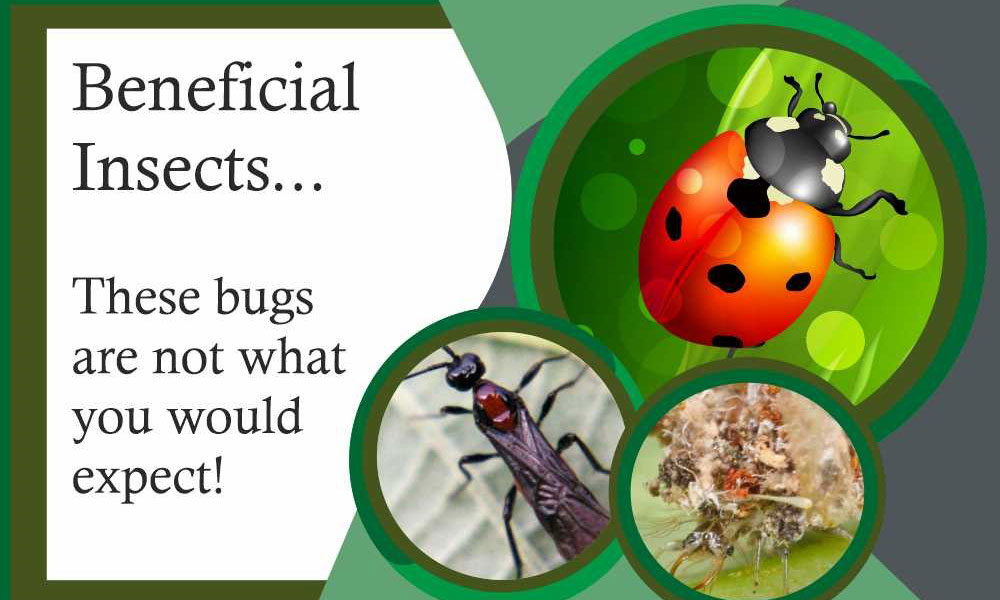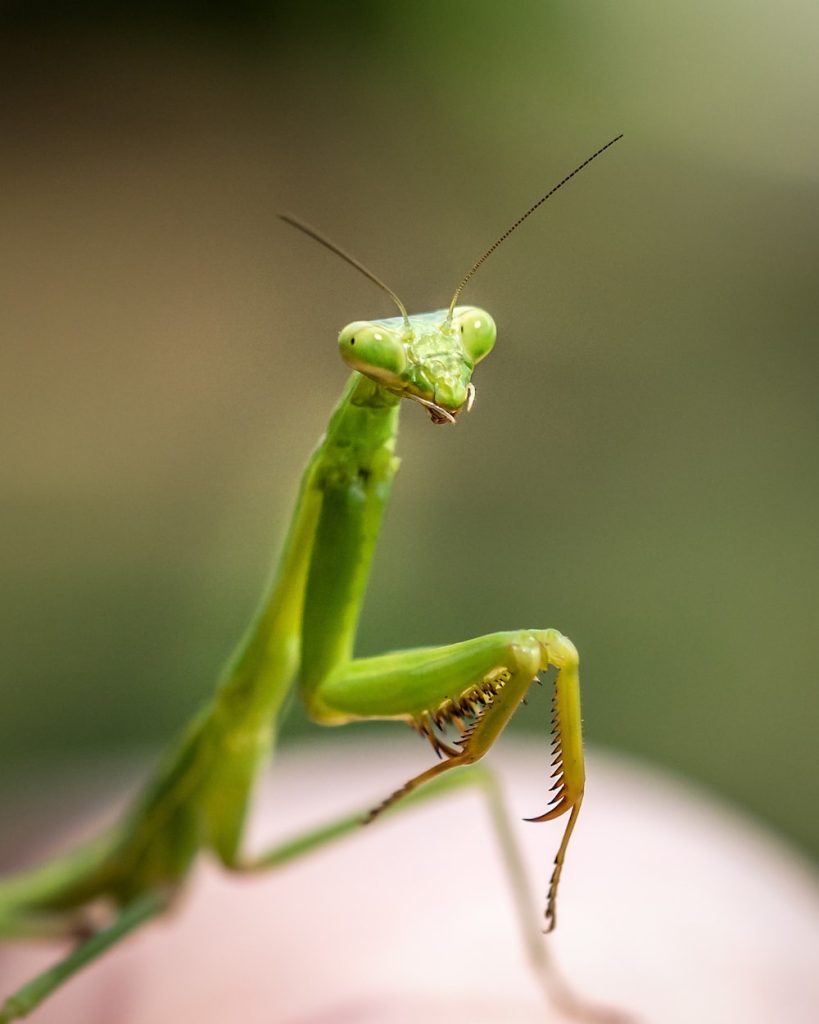HANDY HELPERS
Beneficial Garden Insects

Gardening is a relaxing and rewarding activity to enjoy in your home. Gardens are often abuzz with bugs, but some bugs will help your garden thrive whilst others will destroy your garden. Know which bugs are beneficial for your garden.
When it comes to bugs in your garden, there are the helpful bugs, the bad bugs, and the outright ugly bugs. Know which bugs are beneficial to your garden and how to attract them so that your garden can bloom.
- Fungus Gnat Predators – Tiny, tan-coloured insects that consume fungal gnats, mites, and springtails. Fungus gnats are often the cause of root damage and root disease in your garden. Fungus gnat predators are beneficial to garden health.
- Ladybirds – A symbol of luck, and your garden is definitely in luck when ladybugs arrive. A ladybug is a small, red beetle with characteristic black spots on the shell. Ladybugs can also be yellow, orange, black, and brown. You can attract ladybugs to your garden by planting certain herbs such as dill, fennel, mint, and parsley, as well as marigold and geranium.
- Tachinid Flies – Cabbage loopers, cutworms, gypsy moths, armyworms, and many more destructive insects are in for an awful death when tachinid flies are around. Tachinid flies lay their eggs in destructive insects. Once the larvae hatch, the larvae will eat their way out of the host insect. Tachinid flies have a high survival rate as even if a bug eats their larvae, the larvae will still manage to find their way out. Attract tachinid flies by planting carrots, most herbs, clovers, and anise hyssop.
- Spined soldier bugs – A type of stink bug. While normal stink bug in your garden are destructive for your plants, spined soldier bugs are beneficial. You can tell the difference by the characteristic spines on the spined soldier bug’s body and legs which other stink bugs do not have. Spined soldier bugs hunt and eat caterpillars and certain beetle larvae. They do suck moisture from your plants, but this process does not cause any damage to your plants. Spined soldier bugs are attracted to long-lasting colourful flowers.
- Aphid midges – Tiny flies with long legs and curved antennae. Aphid midge adults help pollinate your garden and aphid midge larvae are beneficial to reducing aphids in your garden. The characteristically bright orange aphid midge larvae will voraciously consume all aphids in sight. All pollen- and nectar-producing plants will attract aphid midges.
- Braconid wasps – Avid tomato growers, this one’s for you! There is nothing more frustrating than picking your perfectly ripened tomatoes to see big holes in them. Your salad is ruined, your mood is gloomy, but there is a bug here to save the day. Braconid wasps specifically target tomato hornworms, the culprit behind all your damaged tomatoes. Plants with small flowers will attract braconid wasps.
- Damsel Bugs – Do not be fooled, this bug does not need a knight in shining armour to swoop into the rescue. Damsel bugs are prey-hunting insects that can fly and run quickly. In appearance, they resemble a cross between a praying mantid and a stink bug. Damsel bugs can be beneficial as they target aphids and numerous caterpillar species. Marigolds, fennel, and spearmint usually attract damsel bugs.
- Ground beetle – A large, shiny black beetle. Their dark colouring is suited to their nocturnal hunting patterns. If you dare venture out in the dark, you will see black beetles hard at work protecting your garden from slugs, snails, caterpillars, and cabbage maggots. Compost heaps, perennial flowers, and a few vegetables will attract this shiny insect assassin.
- Hoverflies – Small, black-and-yellow-bodied insects that zoom around your flower garden using their large brown eyes to suss out the pollen in your flowers. They have a similar appearance to a wasp. Hoverflies get their name as they are often seen hovering above flowers collecting nectar and pollen. The hoverfly larvae are the predators and will feast on aphids, caterpillars, and scale insects. Hoverflies are attracted to yellow flowering plants such as yarrow or basket-of-gold.
- Mealybug destroyers – Small black beetles that are similar in appearance to ladybugs. Mealybug destroyer adults and larvae have one target, and you guessed it, mealybugs. Mealybugs are small, fluffy creatures that, despite their cute appearance, are extremely destructive in your garden. Sunflowers, fennel, and dill will attract mealybug destroyers.
- Green lacewings – very pretty with their brilliant green bodies and unique, lace-designed wings. The adult green lacewings will flit around your garden feeding on nectar and pollen while their larvae munch on many destructive insects. Coriander and dill are known attractors of green lacewings.
Welcoming nature’s handy helpers is simple and magnificently rewarding! Get your veggies pumping, your flowers flourishing, seeds spreading, and most importantly, help sustain the precious eco-system in your garden. Attract bees, butterflies, dragonflies, birds, and eco-barometers like frogs and lizards.
Join us this Friday 25 November 2022 for our FREE online workshop on: ‘Handy Helpers – Beneficial insects in the garden’, with Garden Guru Sue Both.
Please use the following login details to join us at 11am sharp over Zoom:
Meeting ID: 863 2568 9794
Passcode: 993030
or use the following direct link: https://bit.ly/3TwjmMx

